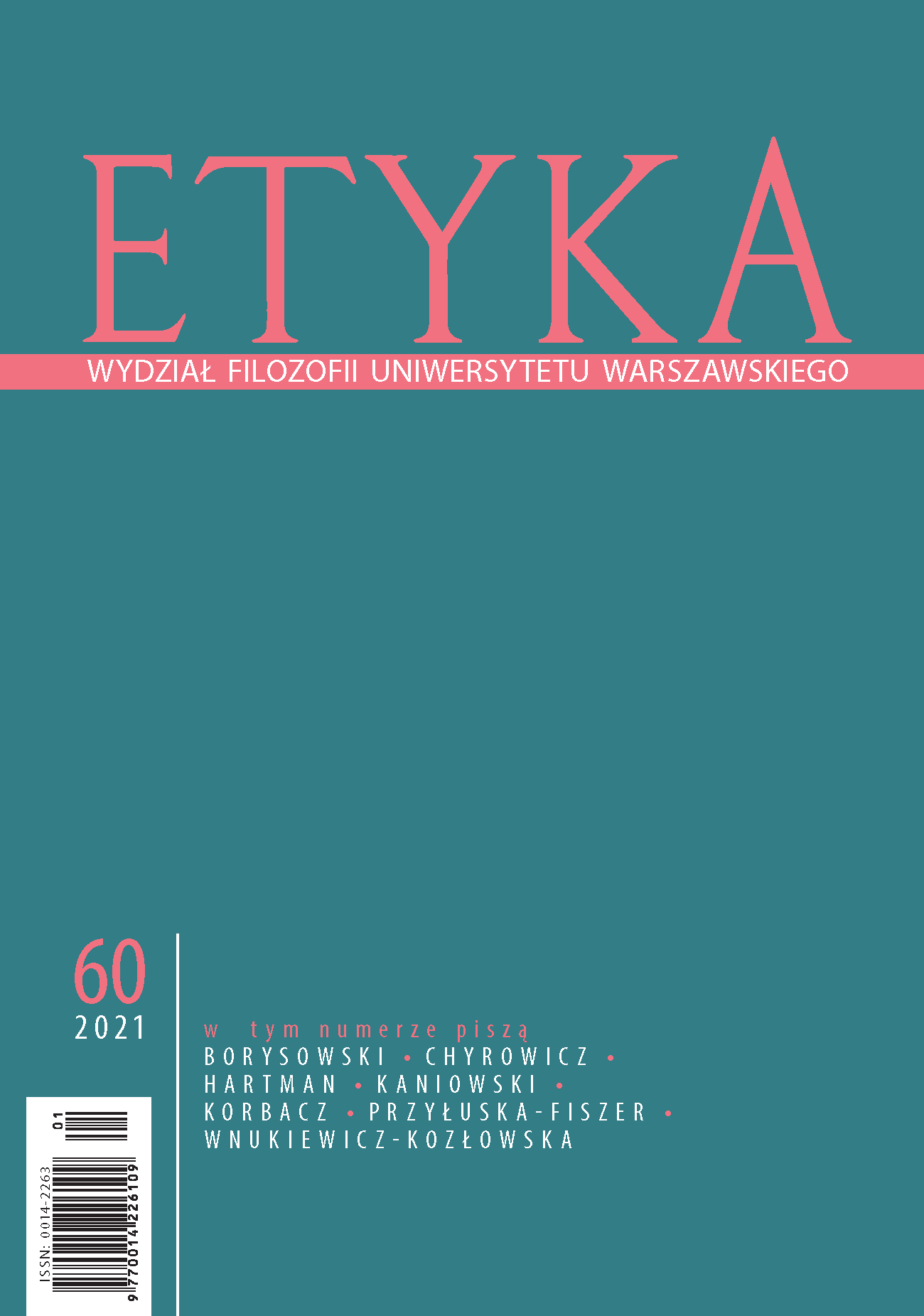The Teaching of the Catholic Church and the Polish Bioethical Debate
Abstract
The moral doctrine of the Catholic Church, concerning bioethical issues, is one of the positions present in the Polish bioethical debate. This seems understandable considering the declared affiliation of the most Poles to the Catholic Church. Catholic moralists take the position that the doctrine represented by them has not a purely religious character. In their analyses, they refer to the category of natural law, deriving from it the obligation to respect the life of every human being from the moment of conception until its natural death. This is the reason why they reject abortion, euthanasia, and the destruction human embryos. Apart from the aforementioned controversial points there are also bioethical issues in which the Church’s position does not evoke controversies in the social debate, e. g. transplantology.
References
De Dios Vial Correa, J., Sgreccia, E. (red.). 2005. The Dignity of Human Procreation and Reproductive Technologies; Anthropological and Ethical Aspects. Proceedings of the Tenth Assembly of the Pontifical Academy for Life (Vatican City, 20-22 February 2004). Vatican: Libreria Editrice Vaticana.
De Dios Vial Correa, J., Sgreccia, E. (red.). 1998. Identity and Statute of Human Embryo. Proceedings of Third Assembly of the Pontifical Academy for Life (Vatican City, February 14-16, 1997). Vatican: Libreria Editrice Vaticana.
De Dios Vial Correa, J., Sgreccia, E. (red.). 2003. The Nature and Dignity of the Human Person as the Foundation of the Right to Life. The Challenges of the Contemporary Cultural Context, Proceedings of the Eighth Assembly of the Pontifical Academy for Life (Vatican City, 25-27 February 2002). Vatican: Libreria Editrice Vaticana.
De Dios Vial Correa, J., Sgreccia, E. (red.). 2004. Ethics of Biomedical Research in a Christian Vision. Proceedings of the Ninth Assembly of the Pontifical Academy for Life (Vatican City, 24-26 February 2003). Vatican: Libreria Editrice Vaticana.
Eijk, W.J., Hendriks, L.M., Raymakers, J.A., Fleming, J.I. 2014. Manual of Catholic Medical Ethics, tłum. M.R. van der Berg, J. Raymakers. Ballarat Connor Court Publishing.
Fisher, A. 2012. Catholic Bioethics for a New Millennium. New York: Cambridge University Press.
Kelly, D.F. 2007. Medical Care at the End of Life. A Catholic Perspective. Washington DC: Georgetown University Press.
Laffitte, J., Carrasco de Paula, I. (red.). 2010. The New Frontiers of Genetics and the Risk of Eugenics. Proceedings of the Fifteenth Assembly of the Pontifical Academy for Life (Vatican City, 20-21 February 2009). Vatican: Libreria Editrice Vaticana.
Machinek, M. 2007. Spór o status ludzkiego embrionu. Olsztyn: Wydawnictwo Uniwersytetu Warmińsko-Mazurskiego w Olsztynie.
Sgreccia, E. 2012. Personalist Bioethics. Foundations and Applications, tłum. J.A. Di Camillo, M.J. Miller. Philadelphia: The National Catholic Bioethics Center.
Sgreccia, E., Carrasco De Paula, I. (red.). 2006. Quality of Life and the Ethics of Health, Proceedings of the Eleventh Assembly of the Pontifical Academy for Life (Vatican City, 21-23 February 2005). Vatican: Libreria Editrice Vaticana.
Sgreccia, E., Laffitte, J. (red.). 2007. The Human Embryo Before Implantation. Scientific Aspects and Bioethical Considerations, Proceedings of the Twelfth Assembly of the Pontifical Academy for Life (Vatican City, February 27 February - 1 March 2006). Vatican: Libreria Editrice Vaticana.
Sgreccia, E., Laffitte, J. (red.). 2009. Alongside the Incurably Sick and Dying Person: Ethical and Practical Aspects. Proceedings of the Fourteenth Assembly of the Pontifical Academy for Life (Vatican City, 25-27 February 2008). Vatican: Libreria Editrice Vaticana.
Wróbel, J. 1999. Człowiek i medycyna. Teologicznomoralne podstawy ingerencji medycznych. Kraków: Wydawnictwo Księży Sercanów.
Downloads
Published
Issue
Section
License
Works published in ETYKA are available under the Creative Commons Attribution No Derivatives 4.0 International Licence (CC BY-ND), which entails acknowledgement of authorship without derivative works. Under this licence, Authors keep their copyrights and agree that their works can be used again legally for any purpose, including commercial ones, except for the creation of derivative works, without the need to obtain previous consent of the Author or publisher. The articles can be downloaded, printed, copied and disseminated; under the condition that the authorship is indicated accordingly, together with the place of original publication. The Authors preserve their copyrights to the above-mentioned works without any limitation whatsoever.



